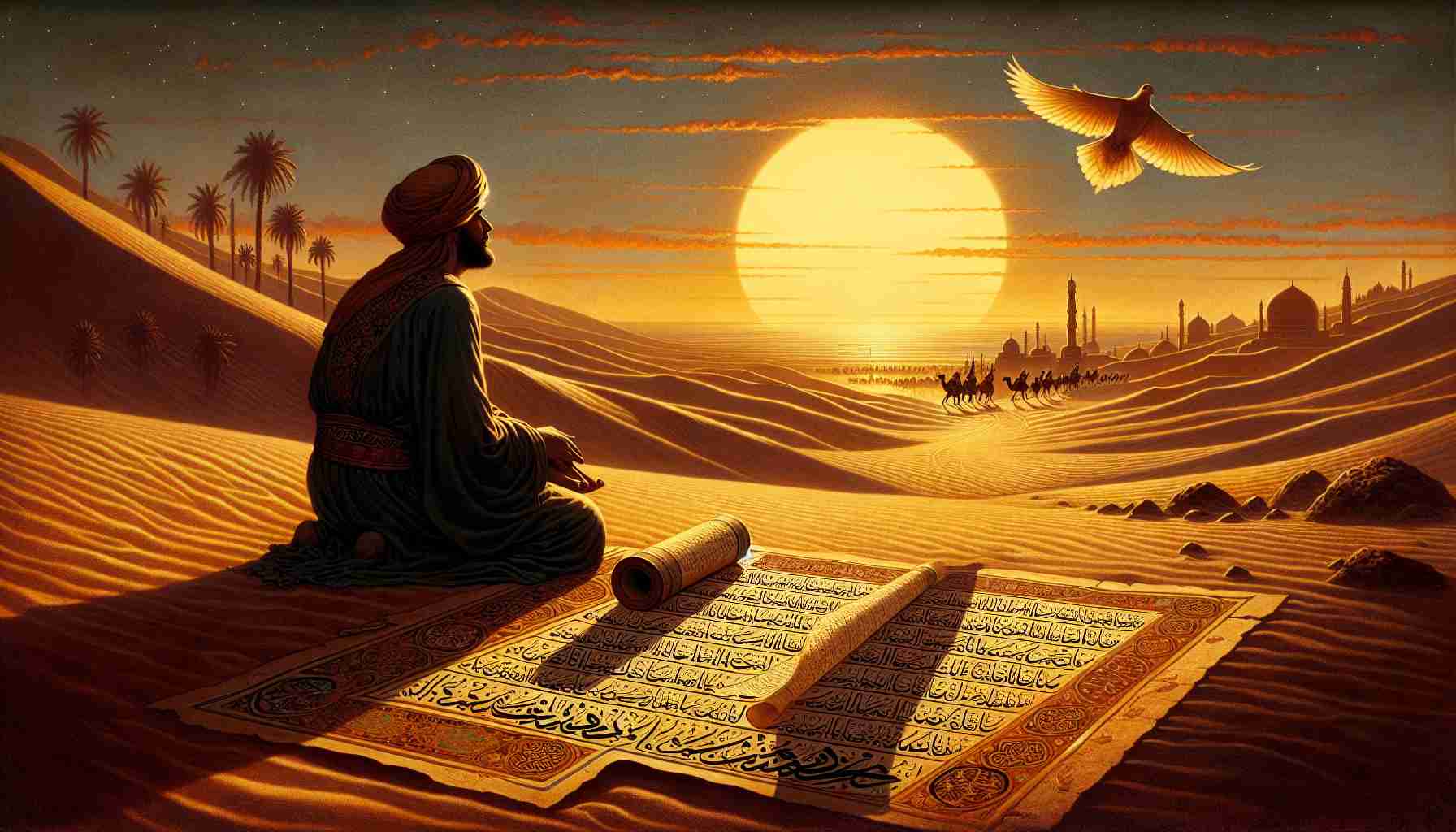

The sun had only just begun to rise, painting the desert sky in pale streaks of orange, when I saw our leader fasten the cactus-leaf saddle on his camel. I had been in his company since I was a boy. You won’t find my name in the books of seerah — the life stories of Prophet Muhammad ﷺ — but I was there on one of the mornings that shaped how I understood integrity.
We were a day’s travel outside of Medina — the city where the Prophet Muhammad ﷺ had migrated to and built a community. The night before, a group of Quraysh travelers passed by. They were from Mecca — the very people who had fought against us in battles. But these ones were under a treaty, protected by an agreement the Prophet ﷺ had made with their tribe. They hadn’t threatened anyone. They just stopped to rest, drink water, and leave.
When I saw them, my blood boiled. I was still young and still remembered the wounds we received at Uhud and the pain we felt after the Muslims were betrayed during the Battle of the Trench. My hand found its way to the handle of my sword. A part of me wanted to confront them, to show them we were no longer weak. I couldn’t understand how the Prophet ﷺ allowed them to pass so calmly, as though nothing had happened before.
That morning, I finally spoke. “Messenger of Allah,” I said to him when we were alone, “do they not deserve to be punished for what their people did to us?”
He looked at me with his calm, knowing gaze. “They are protected by our treaty,” he said.
“But what if—” I started, but he raised his hand gently.
“We do not betray,” he said, “even if others might.” His voice was steady, not angry, but firm — like a wall built on truth. “Whoever gives a people a guarantee of safety must not violate it.”
Later, I learned that this was recorded in the hadith collections, including Abu Dawood, where it is said the Prophet ﷺ told his followers not to break a truce once it had been given.
I felt ashamed. My face grew hot — not from the sun, but from realizing how small my thinking had been. I thought bravery was fighting. That honor came from defeating the enemy. But in that moment, I saw a different kind of strength — the strength to keep a promise, even when it’s hard.
The Prophet ﷺ showed us that integrity isn’t just a good idea. It’s a command from Allah — a reflection of our faith. I understood then that Muslims are not only people of courage, but people of trust. And I’ve taught my son this command, just as I learned it that day in the rising heat of the desert.
Inspired by the hadith in Abu Dawood 2758: "Whoever gives a person a promise of safety must not betray him."
The sun had only just begun to rise, painting the desert sky in pale streaks of orange, when I saw our leader fasten the cactus-leaf saddle on his camel. I had been in his company since I was a boy. You won’t find my name in the books of seerah — the life stories of Prophet Muhammad ﷺ — but I was there on one of the mornings that shaped how I understood integrity.
We were a day’s travel outside of Medina — the city where the Prophet Muhammad ﷺ had migrated to and built a community. The night before, a group of Quraysh travelers passed by. They were from Mecca — the very people who had fought against us in battles. But these ones were under a treaty, protected by an agreement the Prophet ﷺ had made with their tribe. They hadn’t threatened anyone. They just stopped to rest, drink water, and leave.
When I saw them, my blood boiled. I was still young and still remembered the wounds we received at Uhud and the pain we felt after the Muslims were betrayed during the Battle of the Trench. My hand found its way to the handle of my sword. A part of me wanted to confront them, to show them we were no longer weak. I couldn’t understand how the Prophet ﷺ allowed them to pass so calmly, as though nothing had happened before.
That morning, I finally spoke. “Messenger of Allah,” I said to him when we were alone, “do they not deserve to be punished for what their people did to us?”
He looked at me with his calm, knowing gaze. “They are protected by our treaty,” he said.
“But what if—” I started, but he raised his hand gently.
“We do not betray,” he said, “even if others might.” His voice was steady, not angry, but firm — like a wall built on truth. “Whoever gives a people a guarantee of safety must not violate it.”
Later, I learned that this was recorded in the hadith collections, including Abu Dawood, where it is said the Prophet ﷺ told his followers not to break a truce once it had been given.
I felt ashamed. My face grew hot — not from the sun, but from realizing how small my thinking had been. I thought bravery was fighting. That honor came from defeating the enemy. But in that moment, I saw a different kind of strength — the strength to keep a promise, even when it’s hard.
The Prophet ﷺ showed us that integrity isn’t just a good idea. It’s a command from Allah — a reflection of our faith. I understood then that Muslims are not only people of courage, but people of trust. And I’ve taught my son this command, just as I learned it that day in the rising heat of the desert.
Inspired by the hadith in Abu Dawood 2758: "Whoever gives a person a promise of safety must not betray him."